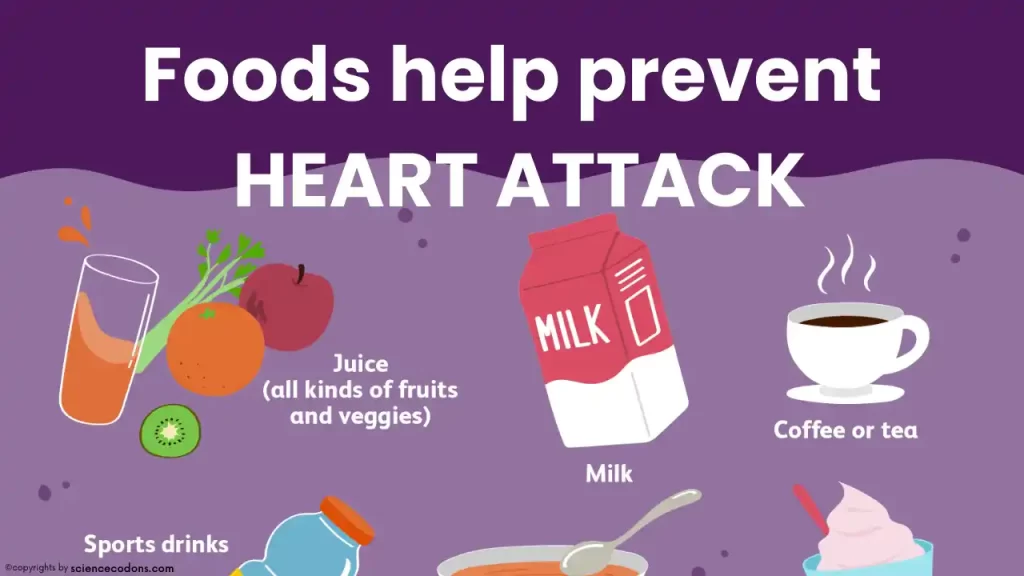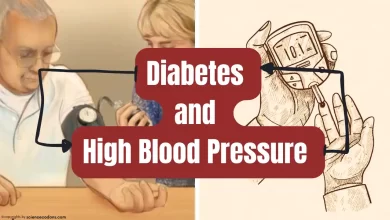
Heart attack is a serious condition when blood flow to the heart is blocked, usually by a clot in the coronary arteries. Heart attack can damage the heart muscle and lead to complications such as arrhythmia, heart failure, or cardiac arrest. Fortunately, there are some foods that can help lower the risk of heart attack by improving your cholesterol levels, blood pressure, blood sugar, and inflammation. In this post, we will explore some of the best foods for your heart health and how to include them in your diet.
Fruits and Vegetables
Fruits and vegetables are rich in vitamins, minerals, antioxidants, and fiber that can help protect your heart from oxidative stress, inflammation, and plaque buildup. They are also low in calories and can help you maintain a healthy weight, which is important for preventing heart attacks. Some of the best fruits and vegetables for your heart include:
Oranges
Oranges are high in vitamin C, folate, and potassium, which can help lower blood pressure and prevent blood clots. They also contain a type of fiber called pectin, which can help reduce cholesterol levels.
Avocado
Avocado is a source of healthy monounsaturated fats, which can help lower LDL (bad) cholesterol and raise HDL (good) cholesterol. Avocado also contains potassium, magnesium, and antioxidants that can support your heart function.
Spinach
Spinach is a leafy green vegetable loaded with vitamin K, magnesium, folate, and nitrates, which can help regulate blood pressure, prevent blood clots, and improve blood flow. Spinach also contains lutein, a carotenoid that can help prevent plaque formation in the arteries.
To get the most benefits from fruits and vegetables, aim for at least five servings a day, preferably of different colors and varieties. You can eat them fresh, frozen, canned, or dried, as long as they are not processed with added sugar, salt, or fat. You can also make smoothies, salads, soups, or stir-fries with fruits and vegetables or snack on them raw with some hummus or nut butter.
Whole Grains
Whole grains have not been refined or stripped of their bran, germ, and endosperm, which contain most of the nutrients and fiber. Whole grains can help lower your risk of heart attack by:
- Lowering cholesterol: Whole grains contain soluble fiber, which can bind to cholesterol in your digestive tract and prevent it from being absorbed into your bloodstream. This can help lower your total and LDL cholesterol levels linked to heart attack.
- Lowering blood pressure: Whole grains contain magnesium, potassium, and phytochemicals, which can help relax your blood vessels and lower your blood pressure. High blood pressure is a significant risk factor for heart attack5.
- Lowering blood sugar: Whole grains have a lower glycemic index than refined grains, which means they cause a slower and steadier rise in your blood sugar levels after eating. This can help prevent spikes and crashes in your blood sugar, damaging your blood vessels and increasing your risk of heart attack.
Some examples of whole grains are oats, barley, quinoa, brown rice, buckwheat, and whole wheat. You can replace refined grains such as white bread, white rice, and white pasta with whole grains in your meals and snacks. You can also add whole grains to your salads, soups, casseroles, or baked goods. (read more about whole wheat bread healthy)
Nuts and Seeds
Nuts and seeds are crunchy and delicious snacks that can also benefit your heart health. They are packed with healthy fats, protein, fiber, and antioxidants that can help:
- Lower cholesterol: Nuts and seeds contain unsaturated fats, which can help lower your LDL cholesterol and triglycerides and raise your HDL cholesterol. They also contain plant sterols, which can block cholesterol absorption from your food.
- Lower blood pressure: Nuts and seeds contain potassium, magnesium, and arginine, which can help dilate your blood vessels and lower your blood pressure. They also contain omega-3 fatty acids, which can reduce inflammation and improve your blood flow.
- Lower inflammation: Nuts and seeds contain vitamin E, selenium, and polyphenols, which can help fight oxidative stress and inflammation in your body. Chronic inflammation can damage your arteries and increase your risk of heart attack.
Some of the best nuts and seeds for your heart are walnuts, almonds, pistachios, sunflower seeds, flaxseeds, and chia seeds. You can eat them raw, roasted, or salted if you watch your portion size and sodium intake. You can add them to your salads, yogurt, oatmeal, baked goods, or make nut butter or milk.
Fish and Seafood
Fish and seafood are excellent sources of protein, iodine, selenium, and vitamin D, which are essential for your overall health. They are also rich in omega-3 fatty acids, which are a type of polyunsaturated fat that can help prevent heart attack by:
- Lowering triglycerides: Omega-3 fatty acids can help lower your triglycerides, which are a type of fat in your blood that can increase your risk of heart attack if they are too high10.
- Lowering blood pressure: Omega-3 fatty acids can help lower your blood pressure by relaxing your blood vessels and improving your blood flow.
- Lowering inflammation: Omega-3 fatty acids can help lower inflammation in your body by inhibiting the production of pro-inflammatory molecules and enhancing the production of anti-inflammatory molecules.
Salmon, tuna, mackerel, sardines, herring, and oysters are some of the best fish and seafood for your heart. You can eat them fresh, frozen, canned, or smoked if they are not fried or coated with batter. You can also bake, grill, steam, or poach them or make them into soups, stews, or salads. The American Heart Association recommends eating at least two servings of fish or seafood a week, preferably fatty fish.
Conclusion
Eating a balanced and varied diet that includes fruits and vegetables, whole grains, nuts and seeds, and fish and seafood can help lower your risk of heart attack by improving your cholesterol levels, blood pressure, blood sugar, and inflammation. You can also complement your diet with other lifestyle changes, such as quitting smoking, exercising regularly, managing stress, and getting enough sleep. You can enjoy a longer and healthier life by taking care of your heart.
| Food | Benefits |
|---|---|
| Fruits and vegetables | They contain antioxidants that can protect the arteries from damage and lower blood pressure. |
| Nuts and seeds | They have healthy fats, fiber, and plant sterols that can lower cholesterol and inflammation. |
| Fish and seafood | They are rich in omega-3 fatty acids that can improve blood flow and prevent blood clots. |
| Whole grains | They have soluble fiber that can bind to cholesterol and remove it from the body. |
| Olive oil | It has monounsaturated fats and polyphenols that can reduce the risk of heart disease. |
Reference:
- Heart-healthy diet: 8 steps to prevent heart disease – Mayo Clinic
- 21 Foods That Can Save Your Heart (webmd.com)
- Lifestyle Changes to Prevent a Heart Attack | American Heart Association


